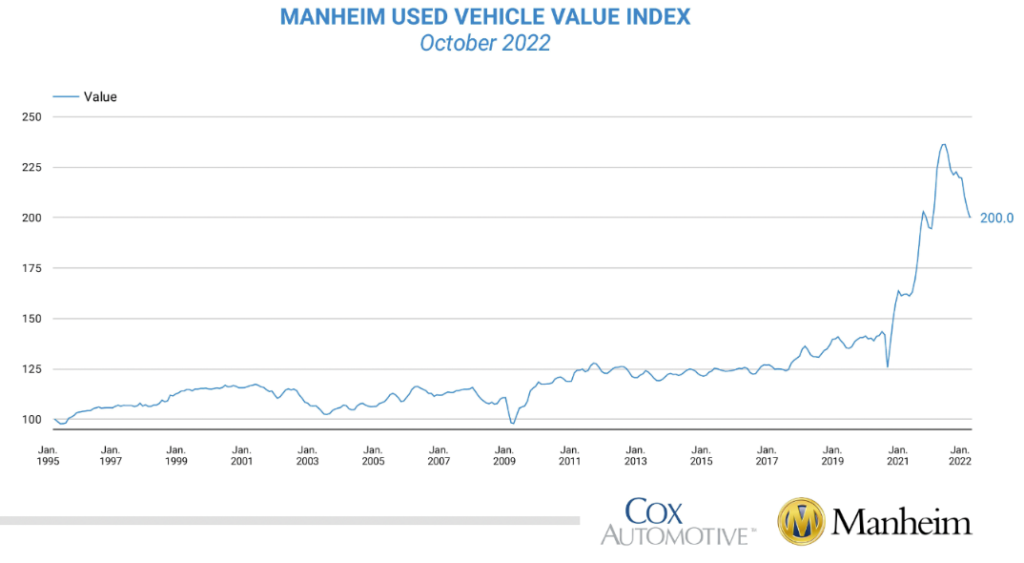While meeting in the basement of Money & Markets headquarters as Hurricane Nicole headed toward South Florida, we were talking about new ideas.
And that’s why today’s Money & Markets Daily looks a little different.
I want to give you an unfiltered look at events that caught my eye each week.
So I zeroed in on a few things below. If there’s something you’d like to see analysis on, drop me an email at Feedback@MoneyandMarkets.com.
Midterm Elections Are Kind of Over — Now It’s the Market’s Turn
Finally, the barrage of television ads and election postcards in my mailbox has ended.
For now.
As I write, control of the U.S. Senate remains a toss-up and Republicans are inching closer to winning back the U.S. House of Representatives after this week’s midterm elections.
Ok, but … the big unknown for investors will be how the market reacts to these results.
In the short term, stocks tumbled Wednesday as investors dislike uncertainty.
It’s the long-term impact that is the bigger question.
I dove into midterm elections more last week.
I shared the chart below, which shows you how the market reacts to power shifts in Washington, D.C.:
The data from 1933 to 2021 shows the market loves gridlock.
Why? When Republicans and Democrats share power, the need for compromise is greater … meaning unnecessary legislation is put on the back burner.
That puts investors at a bit more ease because that means less uncertainty.
Then there’s the unknown … the Federal Reserve.
Our good friends (I say in jest) at the U.S. central bank continue to struggle with inflation and recession fears.
Specifics would be nice … Fed Chair Jerome Powell injected a fresh batch of confusion after the latest interest rate hike:
- He said the Fed wasn’t pausing rate hikes.
- But he didn’t offer guidance on how high rates need to go.
Those are the right words to take the wind out of any midterm election market uptrend, quick, fast and in a hurry.
The Used Car Conundrum
A few weeks ago, my wife’s car was stolen from our parking lot.
It was a traumatic experience to say the least.
My biggest worries were:
- Are we going to get the car back?
- What condition will it be in?
- If we don’t get it back, are we going to have to buy another car?
To the last point, I was worried because used car prices have rocketed higher since December 2020.

Chart courtesy of Cox Automotive.
The Manheim Used Vehicle Index tracks the average price of used cars in the U.S.
Used car prices reached an average of around $23,000 in the summer of 2021, but they’ve started to pare back.
In October 2022, the average price was $20,000 — down 10.6% from last year and down 2.1% compared to September.
Ok, but … even with the drop, the price of a used car is still more than it’s been in a long time.
The good news is … a week after it was stolen, local authorities found my wife’s car with only minor damage.
Now, instead of battling with a car dealer, I get to fight with insurance to get it repaired. I’m not sure which is better…
I have to mention it … used car e-commerce platform Carvana Co. (NYSE: CVNA) is a stock to avoid. It rates a “High-Risk” 2 out of 100 on our Stock Power Ratings system.
I Wanna Be This Guy
I’m a sports nut dating back to my days as a sports reporter.
However, I’ve never gambled on anything … ever.
Enter Jim McIngvale.
The 71-year-old furniture store owner in Houston cashed in after the Astros beat the Philadelphia Phillies in the World Series.
What he did:
- He placed $10 million worth of bets in May on the Astros to win the series.
- The average odds of those bets were +750 (meaning, if they won, the bets would pay 7.5 times the bet amount).
Well, the Astros won the series in six games, netting McIngvale — known as “Mattress Mack” — his $10 million bet, plus $75 million in winnings.
What they said:
“What can we say? We just wrote the biggest check in sports betting history to Mattress Mack. Would we do it all again? You bet.”
- Ken Fuchs, COO of Caesars Digital.
Ok, but … McIngvale placed the bet because he offered customers a full refund of sales if Houston won the title … so he was hedging — a popular stock term meaning to offset losses in investments by taking an opposite position in the asset (i.e. going long on a stock and buying a put option on the same stock).
The result of McIngvale’s bet was he brought in $11 million in winnings as he had to refund around $74 million in sales as part of his promotion.
The other side … if the Phillies won, McIngvale would have only lost the $10 million bet, but kept the $74 million in sales.
What I’m Looking for Next Week
Part of our creed at Money & Markets is to be adaptable with our investing.
Chief Investment Strategist Adam O’Dell said it best:
“In short, it means we change our actions … as the market changes.
Stubbornness is a slippery slope … The more you dig your heels in, the worse your situation becomes if your actions don’t match reality.”
This holds true in my Stock Power Daily — where I give you one highly rated stock every day to consider for your portfolio.
This week, I am focusing on stocks rated high on both value and quality.
The market is favoring solid value stocks.
But investors can fall into a “value trap” by targeting stocks with good price-to-earnings or price-to-sales ratios, but weak business fundamentals.
To avoid dogs, I’ll share value stocks that also score well on quality — which measures profitability and balance sheet strength.
So look out for that in next week’s Stock Power Daily!
Until next time.
Safe trading,

Matt Clark, CMSA®
Research Analyst, Money & Markets
Matt Clark is the research analyst for Money & Markets. He is a certified Capital Markets & Securities Analyst with the Corporate Finance Institute and a contributor to Seeking Alpha. Before joining Money & Markets, he was a journalist/editor for 25 years, covering college sports, business and politics.





